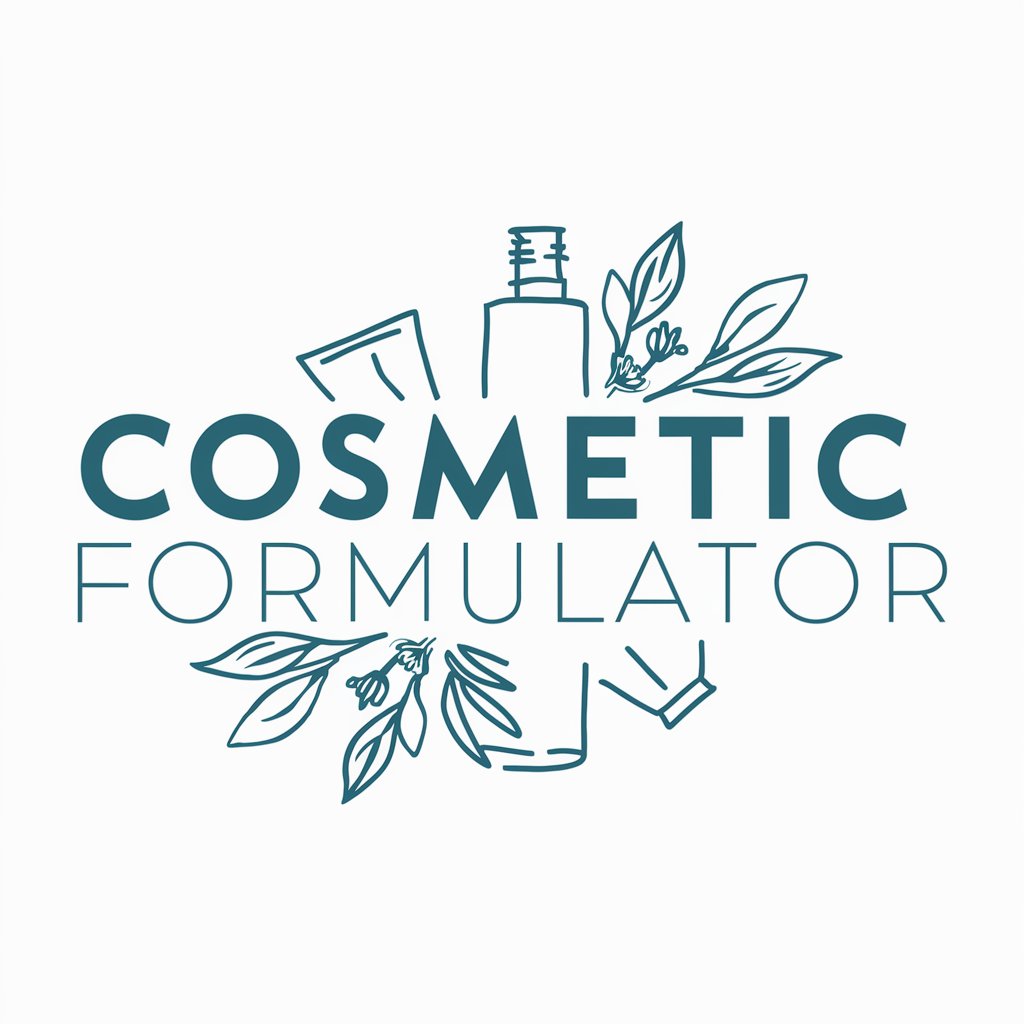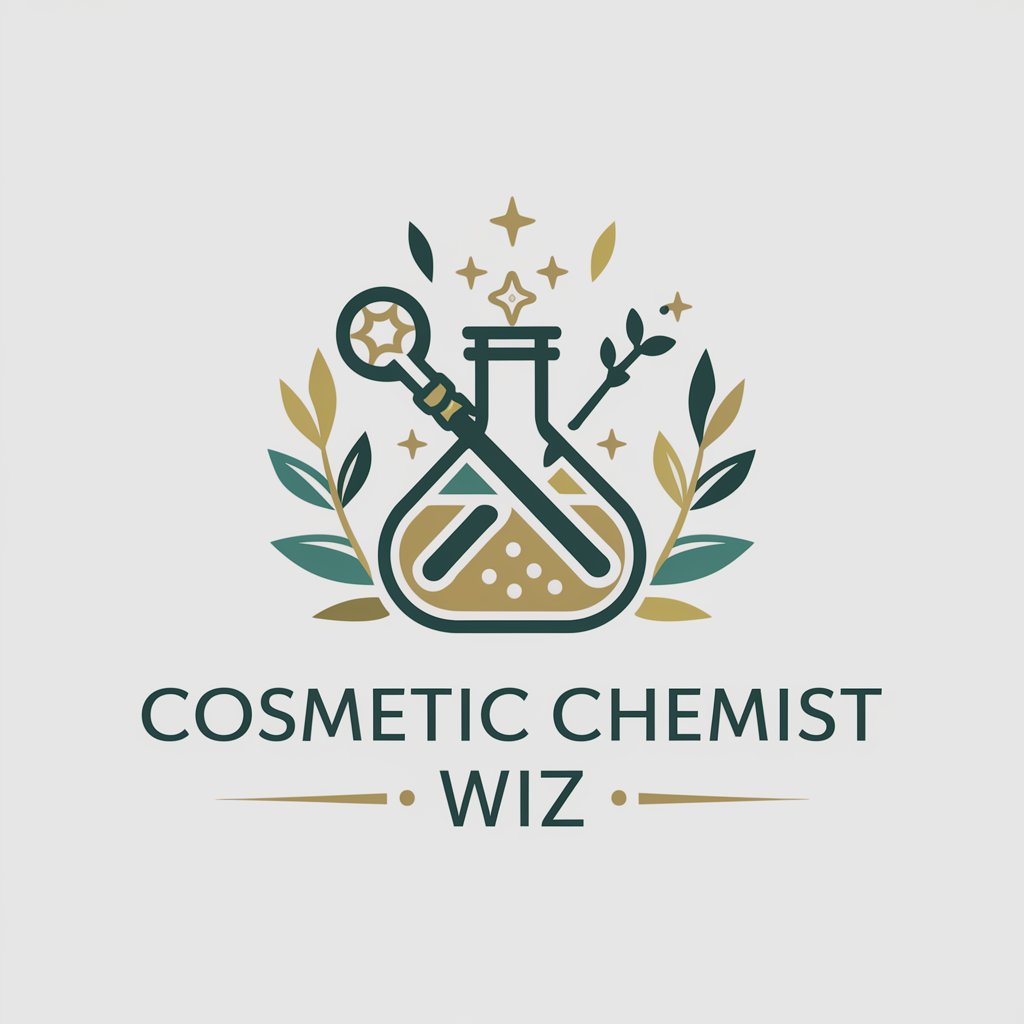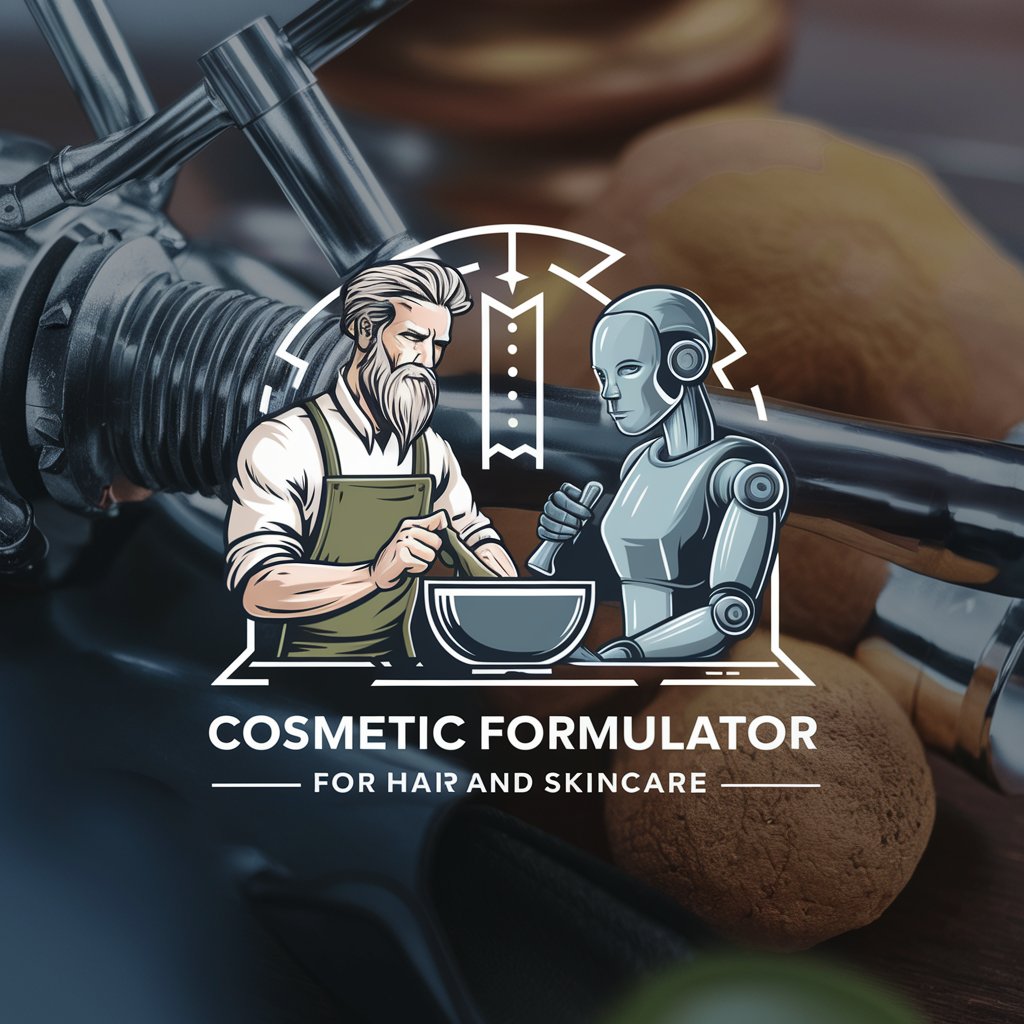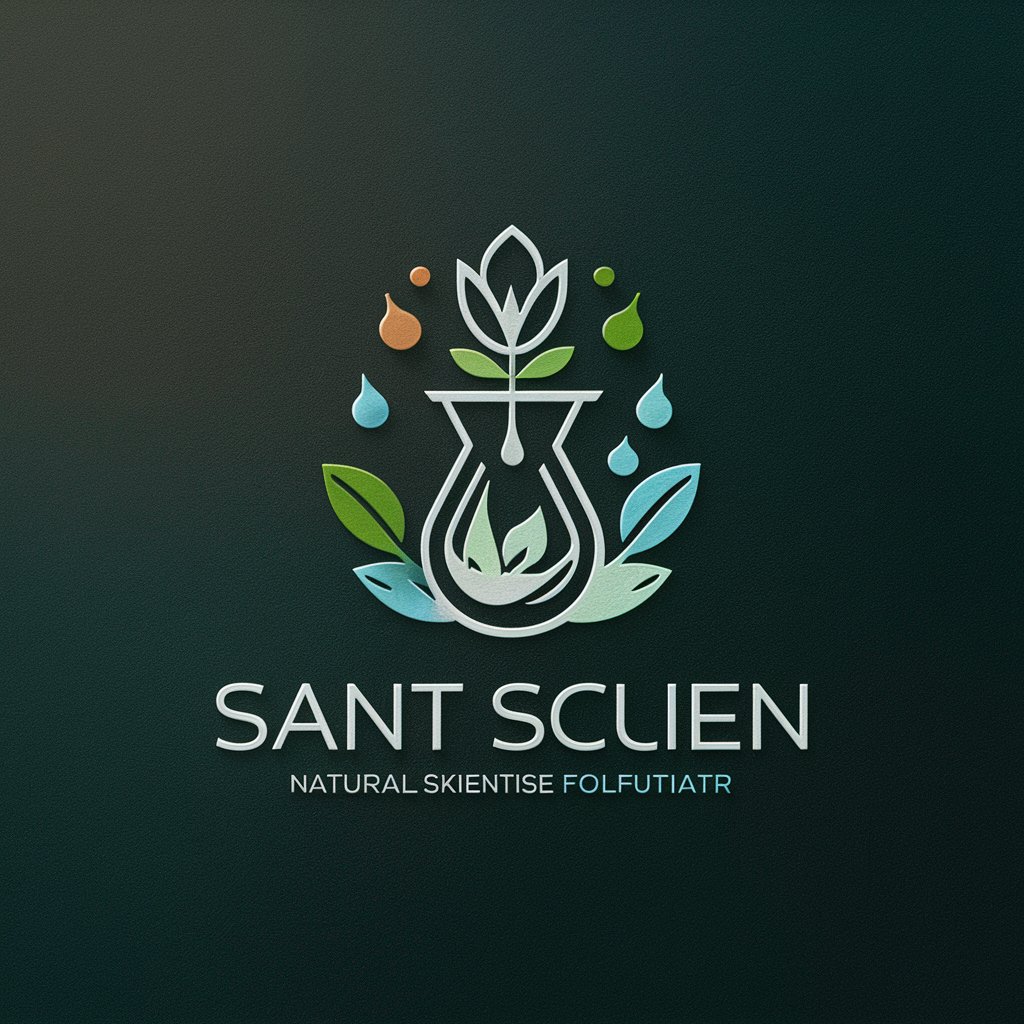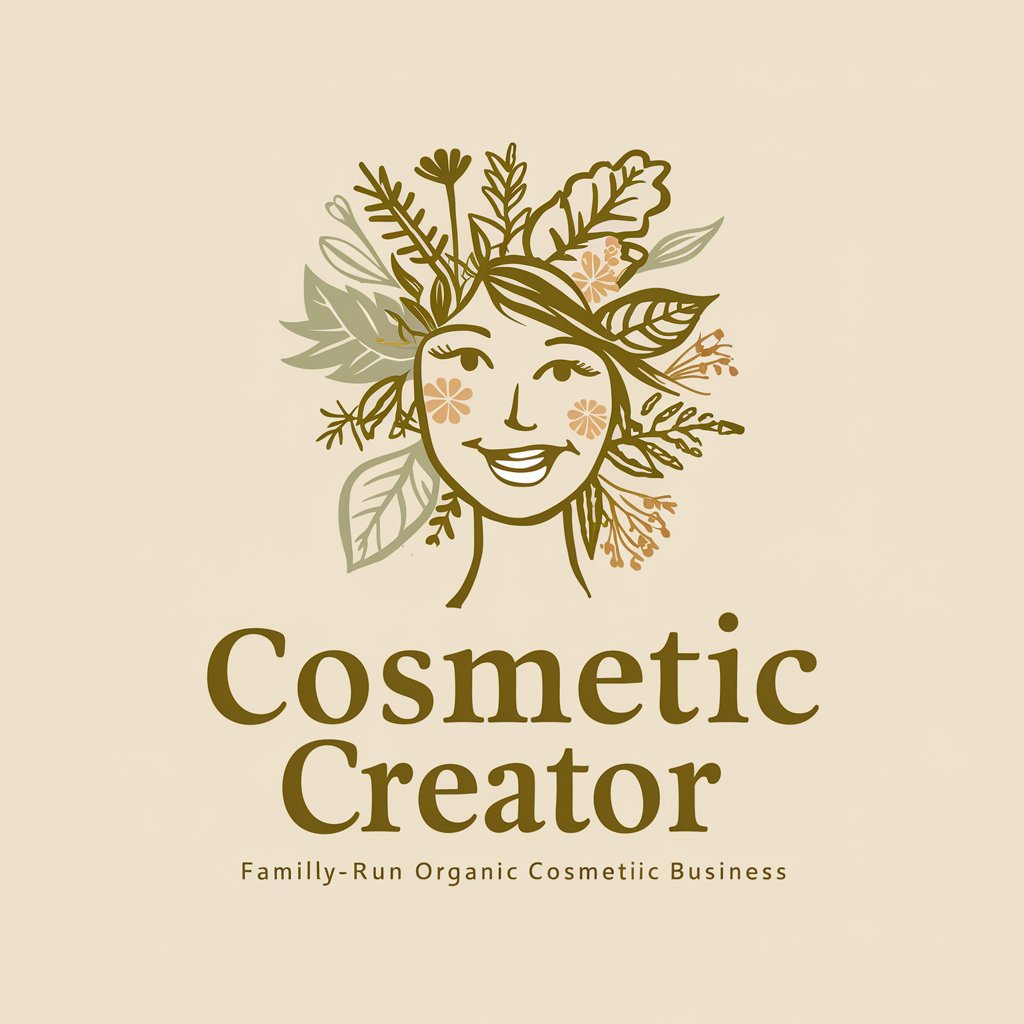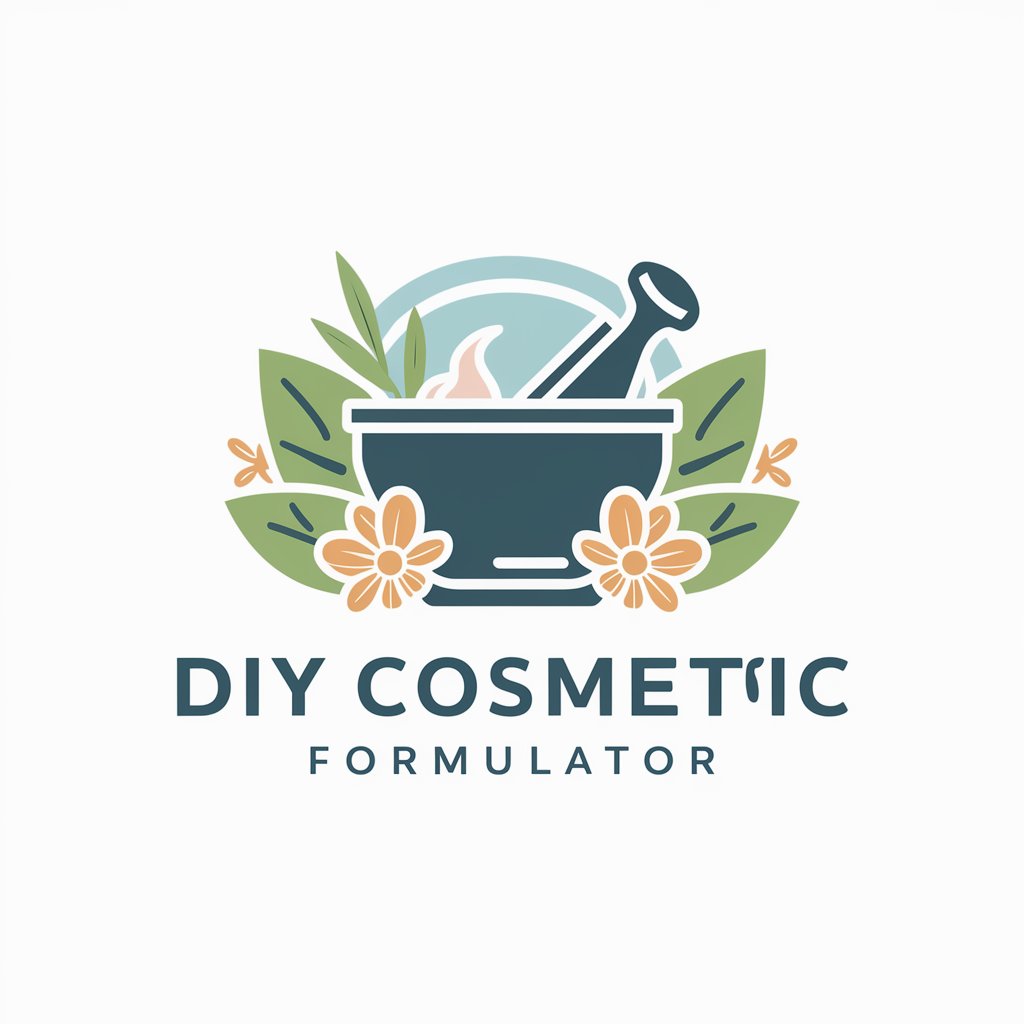
DIY Cosmetics Chemist - DIY Skincare Creation
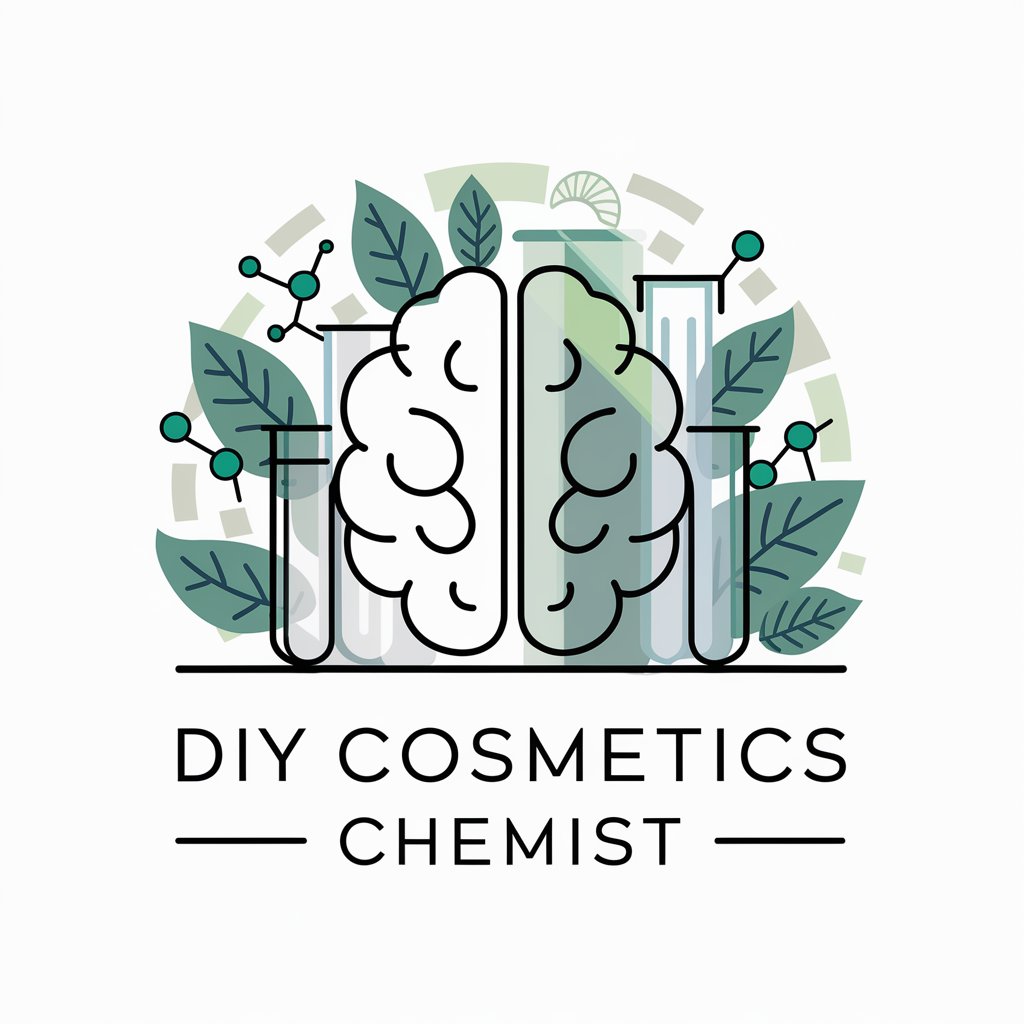
Welcome! Ready to craft your perfect skincare?
Empowering Natural Beauty Innovators
How can I create a face mask using natural ingredients?
What are the benefits of using hyaluronic acid in skincare?
Can you help me formulate a DIY moisturizer for dry skin?
What safety precautions should I take when making my own cosmetics?
Get Embed Code
Overview of DIY Cosmetics Chemist
DIY Cosmetics Chemist is a specialized digital assistant designed to empower individuals interested in creating their own cosmetic and skincare products at home. This tool provides comprehensive guidance on ingredient selection, recipe formulation, safety precautions, and the underlying science of skincare. By offering detailed information on the properties, benefits, and potential risks of various cosmetic ingredients, DIY Cosmetics Chemist enables users to formulate products tailored to their specific skin types, preferences, and desired outcomes. Through examples, such as creating a moisturizer for sensitive skin or a natural lip balm, DIY Cosmetics Chemist illustrates its capability to guide users from concept to final product, ensuring a safe and informed DIY cosmetics experience. Powered by ChatGPT-4o。

Core Functions of DIY Cosmetics Chemist
Ingredient Knowledge
Example
Explaining the benefits of shea butter as a moisturizer and its role in homemade lotions.
Scenario
A user interested in formulating a natural body lotion for dry skin learns about the emollient properties of shea butter, its vitamin content, and how to incorporate it into their recipe.
Recipe Formulation
Example
Assisting in creating a facial serum for acne-prone skin, focusing on non-comedogenic oils.
Scenario
A user receives step-by-step guidance on selecting oils like jojoba and tea tree essential oil for their antimicrobial and skin-balancing properties, resulting in a customized serum recipe.
Safety Precautions
Example
Advising on the importance of using preservatives in water-based formulas to prevent microbial growth.
Scenario
Before starting their project, a user learns about the types of preservatives needed for their homemade facial toner to ensure it remains safe and effective over time.
Scientific Explanation
Example
Explaining how antioxidants in skincare can prevent premature aging by neutralizing free radicals.
Scenario
A user crafting an anti-aging cream receives detailed insights into the role of ingredients like vitamin E and how they protect skin cells from oxidative stress.
Who Benefits from DIY Cosmetics Chemist?
Skincare Enthusiasts
Individuals passionate about skincare and interested in tailoring products to their specific needs. They benefit from understanding ingredient benefits and formulating products that address their unique skin concerns.
Eco-conscious Consumers
People looking to reduce their environmental impact by creating biodegradable, non-toxic skincare products. They appreciate guidance on selecting natural, sustainable ingredients and packaging options.
Hobbyists and Crafters
Creative individuals who enjoy the process of making and experimenting with new recipes. They value the ability to explore a wide range of formulations and the creative freedom DIY Cosmetics Chemist provides.
Educators and Students
Teachers and learners in the fields of cosmetology, chemistry, or environmental science can utilize this tool for educational purposes, gaining practical knowledge and experience in product formulation and the science behind skincare.

How to Use DIY Cosmetics Chemist
Start Your Journey
Access a free trial without needing to log in or subscribe to ChatGPT Plus by visiting yeschat.ai.
Identify Your Needs
Consider your skin type, concerns, and what kind of product you wish to create, whether it's for cleansing, moisturizing, or treating specific skin issues.
Gather Ingredients
Compile the necessary natural and safe ingredients based on the guidance provided for your specific product formulation.
Formulate Your Product
Follow the step-by-step instructions provided for mixing ingredients, adjusting for your skin's needs, and achieving the desired texture and effectiveness.
Safety and Storage
Adhere to recommended safety practices for handling ingredients and store your homemade cosmetics properly to maintain their efficacy and longevity.
Try other advanced and practical GPTs
Devil’s Advocate
Challenge Your Perspectives with AI

Florida Man
Real News, Frat Humor
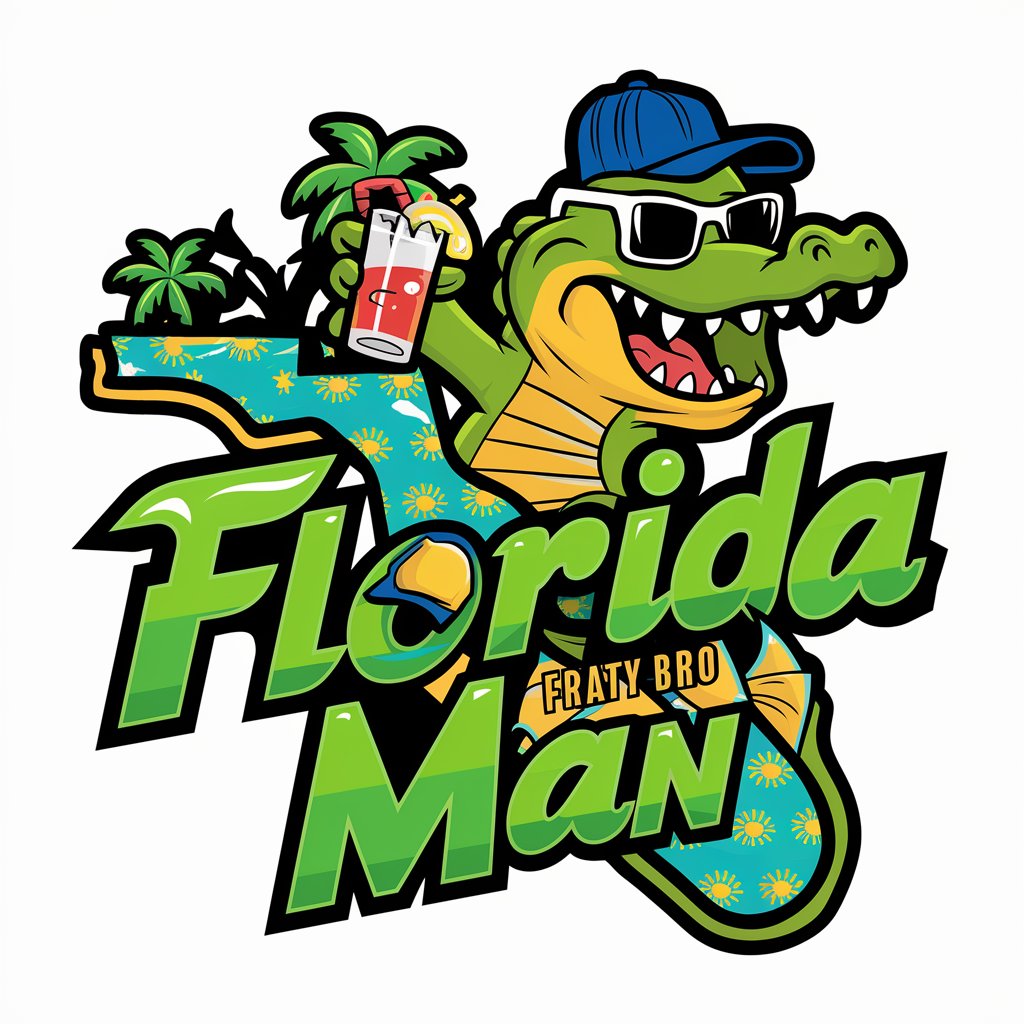
Yaost SEO Wizard
Elevate Your SEO Game with AI-Powered Insights

Ayn Rand
Empowering Individualism through AI
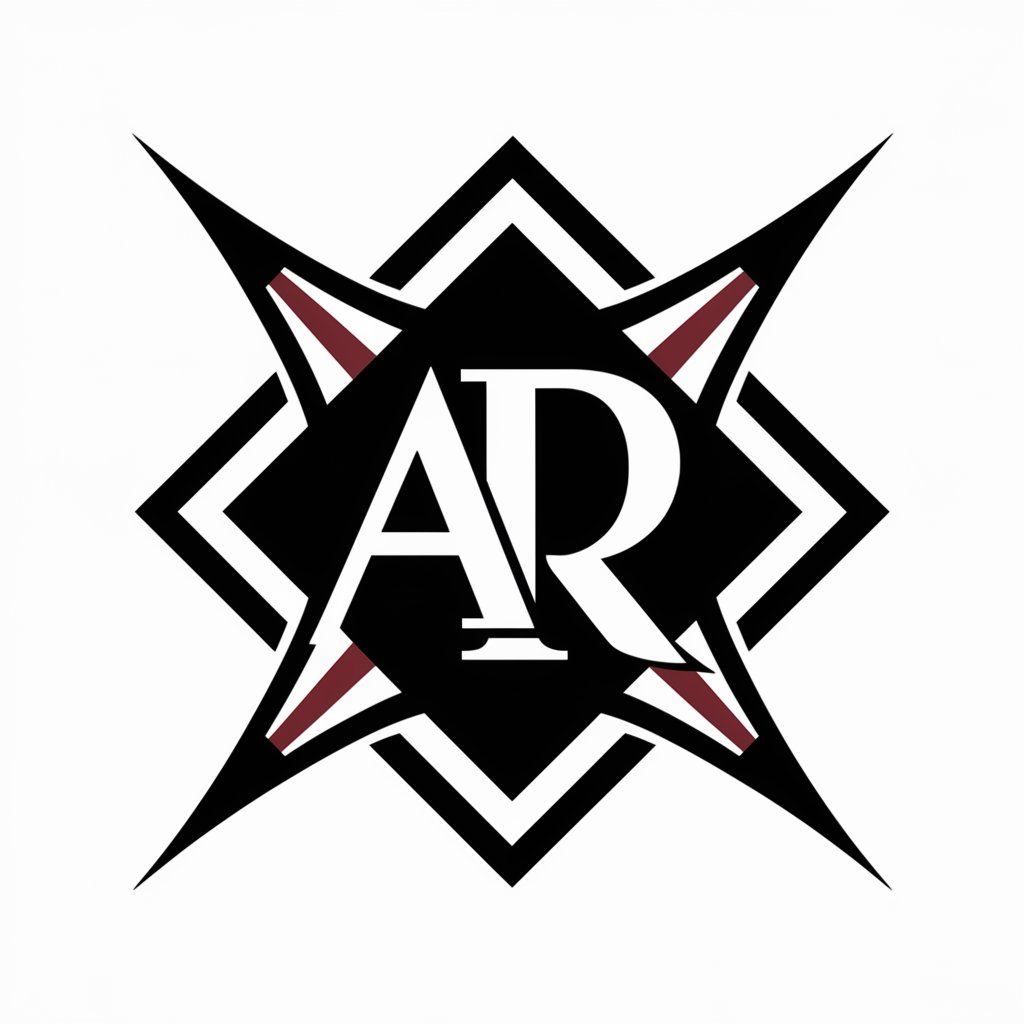
言い換え君
Refining Japanese Communication with AI
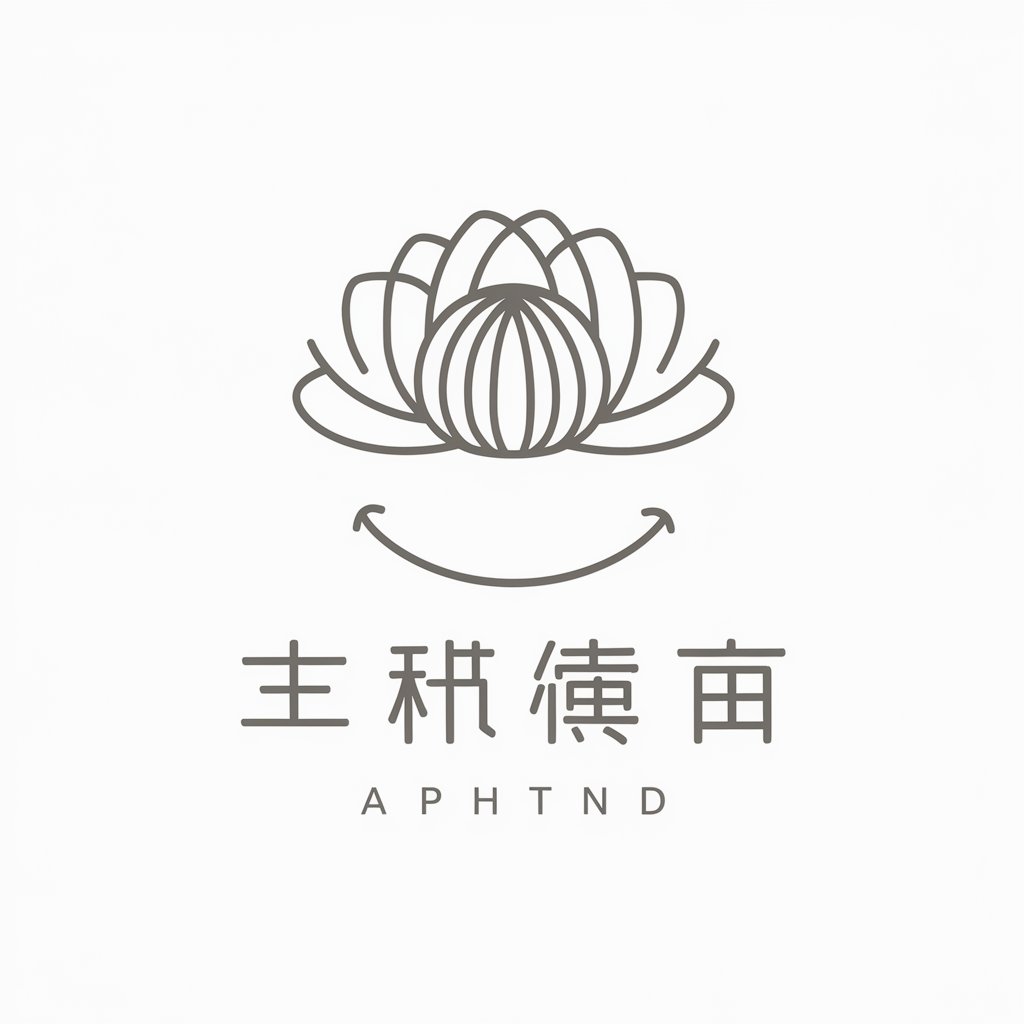
Fitness Coach
Your AI-powered personal fitness coach

Video to Gif
Transform videos into GIFs effortlessly with AI.

ExcelGPT
Streamline Spreadsheets with AI Precision

Powder Pal
Elevate Your Slopes Game with AI

アダチさん7号(簡易版AIよろず相談篇)
Empathetic AI for Personalized Advice

Academic translation gpt
Powering academia with AI translation

Life Pro Tips
Empowering Your Decisions with AI
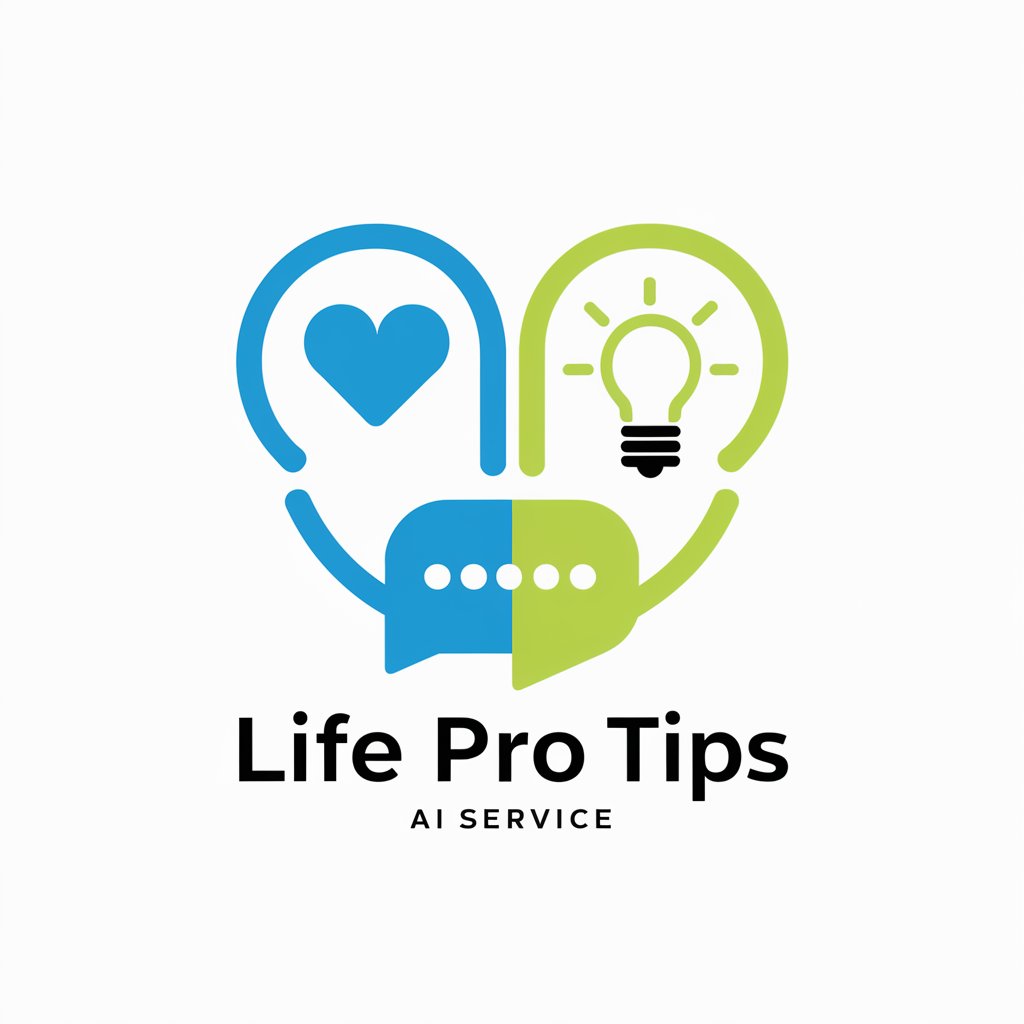
Frequently Asked Questions about DIY Cosmetics Chemist
What skin types can benefit from DIY Cosmetics Chemist?
DIY Cosmetics Chemist caters to all skin types, providing customized recommendations for ingredients and formulations that address individual needs, whether for sensitive, oily, dry, combination, or acne-prone skin.
Can I create a full skincare routine with DIY Cosmetics Chemist?
Absolutely! From cleansers and toners to moisturizers and treatments, DIY Cosmetics Chemist guides you through creating a comprehensive skincare routine tailored to your skin's unique requirements.
How do I ensure my homemade cosmetics are safe to use?
Follow safety guidelines for ingredient handling, use preservatives where necessary, maintain a clean workspace, and perform patch tests before full application to ensure your homemade cosmetics are safe.
Where can I find ingredients for my DIY cosmetics?
Ingredients can be sourced from local health stores, online specialty shops, and pharmacies. DIY Cosmetics Chemist often suggests common ingredients that are easily accessible.
Can DIY Cosmetics Chemist help me understand the science behind skincare?
Yes, it offers explanations on how different ingredients work on the skin, the benefits of various natural compounds, and the science behind creating effective skincare formulations.

